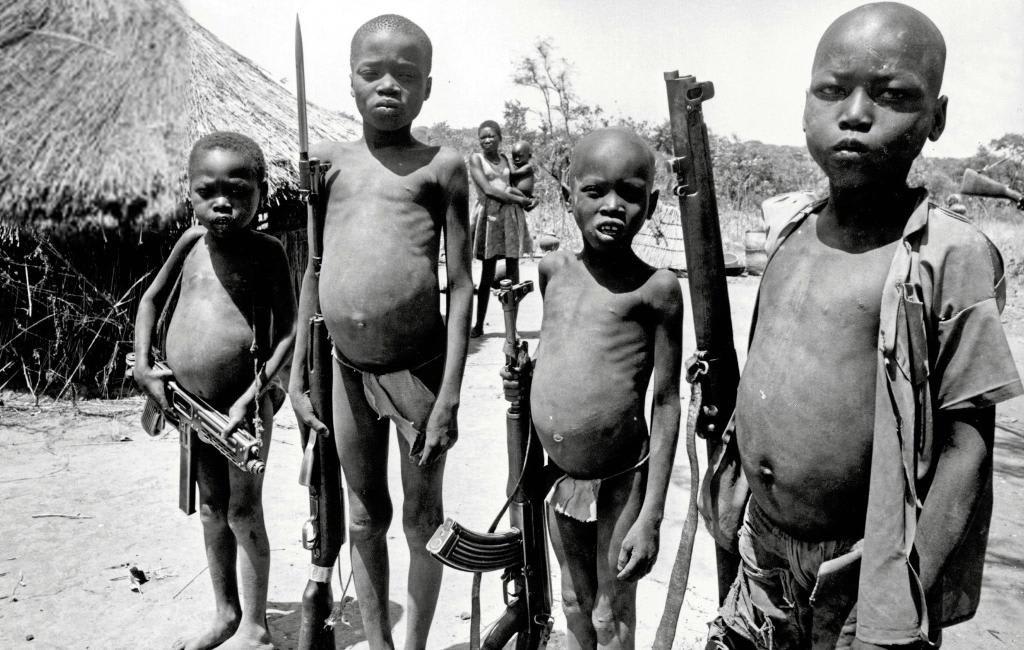LIFE AFTER CIVIL WAR IN SUDAN IN 2023
Post-War Reconstruction in Sudan

The fighting between the Army and the RSF in Khartoum has spread to other parts of the country, but the situation in Darfur is particularly bad. The UN has accused both sides of crimes against humanity, and one man's account of what's happening in Dark Forest paints a much worse picture.
As of my last knowledge update in September 2021, Sudan had experienced conflicts and civil wars over several decades, including the Darfur conflict and the Second Sudanese Civil War. However, there had been some positive developments towards peace and stability at that time. Please note that the situation may have evolved since then. I'll provide an overview of what life could be like after a significant conflict in Sudan:
Reconstruction and Infrastructure Development: After a war, there would likely be a significant need for rebuilding infrastructure, including roads, bridges, schools, hospitals, and more. International aid and cooperation could play a crucial role in funding and executing these projects.
Return of Displaced People: Many people who were displaced due to the conflict would likely start returning to their homes and communities once stability is established. This process can be challenging, as returning populations would need support in rebuilding their lives and livelihoods.
Economic Recovery: Conflict often disrupts the economy, causing loss of jobs and economic activity. In the post-war period, there would be a need for economic recovery and development programs to stimulate job creation and sustainable economic growth.
Reconciliation and Healing: Dealing with the aftermath of conflict involves addressing not only physical reconstruction but also emotional and social healing. Reconciliation efforts would be necessary to mend relationships between different ethnic, religious, and social groups that may have been divided by the conflict.
Security and Justice: Establishing security and ensuring justice for those affected by the conflict is essential. This may involve disarmament and demobilization of armed groups, as well as the establishment of fair and effective judicial systems.
Political Transition: A post-war period often involves a transition to a more stable political environment. This might include efforts to establish inclusive governance structures, ensure representation of various groups, and engage in democratic reforms.
Humanitarian Support: Even after the conflict ends, there may still be ongoing humanitarian needs, particularly for vulnerable populations such as internally displaced people, refugees, and those who have suffered trauma.
Education and Healthcare: Rebuilding education and healthcare systems would be crucial for the well-being of the population. Access to quality education and healthcare services can contribute to long-term development and stability.
International Involvement: The international community, including the United Nations and regional organizations, often plays a role in post-conflict recovery through humanitarian aid, peacekeeping missions, and support for governance and development programs.
Long-Term Development: Ultimately, the goal after a war is to ensure long-term development and stability. This involves sustained efforts in various sectors to create an environment where people can thrive, and conflict is less likely to reoccur.
Keep in mind that the specifics of life after war in Sudan would depend on the nature and extent of the conflict, the efforts of the government, the involvement of international organizations, and the willingness of different groups to work together towards peace and stability. For the most up-to-date information, I recommend checking news sources or official reports on the current situation in Sudan.
As of my last knowledge update in September 2021, I can provide you with some information about post-war reconstruction in Sudan up to that point. However, please note that developments beyond that date will not be included in my response.
Sudan has experienced a number of conflicts and wars over the years, including the Darfur conflict and the Second Sudanese Civil War, which eventually led to the secession of South Sudan in 2011. These conflicts left a significant impact on the country's infrastructure, economy, social fabric, and governance structures.
Efforts for post-war reconstruction in Sudan have been challenging due to various factors including political instability, economic difficulties, and the need to address underlying causes of the conflicts. International organizations, regional bodies, and donor countries have played roles in supporting reconstruction and development projects. Some key areas of focus include:
Infrastructure Development: Rebuilding and improving infrastructure, including roads, bridges, schools, hospitals, and other essential facilities that were damaged or destroyed during conflicts, is a fundamental part of post-war reconstruction.
Peace and Reconciliation: Addressing the root causes of conflicts and promoting peace and reconciliation among different ethnic and religious groups is crucial for long-term stability. This includes efforts to build trust and understanding between communities, as well as transitional justice mechanisms to address past atrocities.
Economic Recovery: Conflict often disrupts economies, leading to unemployment and poverty. Post-war reconstruction efforts typically involve initiatives to jumpstart economic growth, create jobs, and improve livelihoods for affected populations.
Social Services: Rebuilding and improving education and healthcare services are vital components of reconstruction. Many conflict-affected areas have seen disruptions in these services, and restoring them is essential for the well-being of the population.
Governance and Institutional Reform: Conflict can weaken governance structures and institutions. Efforts to strengthen governance, rule of law, and promote good governance practices are important for maintaining stability and preventing further conflicts.
Demining and Rehabilitation: In regions where conflicts involve landmines and explosive remnants of war, demining efforts are critical to ensure the safety of civilians. Rehabilitation programs can also help individuals who have been disabled by such explosives.
Refugee and Internally Displaced Persons (IDP) Return and Reintegration: Many conflicts lead to displacement of populations within the country and across borders. Creating conditions for the safe return and reintegration of refugees and IDPs is a significant challenge in post-war reconstruction.
International Support: International organizations, non-governmental organizations (NGOs), and donor countries often play a role in providing funding, expertise, and technical assistance to support post-war reconstruction efforts.
It's important to note that post-war reconstruction is a complex and ongoing process that takes years or even decades to fully achieve. The specific challenges and strategies for reconstruction in Sudan may vary based on the particular conflict and context. For the most current information on post-war reconstruction in Sudan, I recommend consulting more recent sources, such as news articles, reports from international organizations, and official government statements.
About the Creator
PATRICK GATHU
A very interesting African story teller, you don't wanna miss any of my articles
Enjoyed the story? Support the Creator.
Subscribe for free to receive all their stories in your feed. You could also pledge your support or give them a one-off tip, letting them know you appreciate their work.





Comments
There are no comments for this story
Be the first to respond and start the conversation.